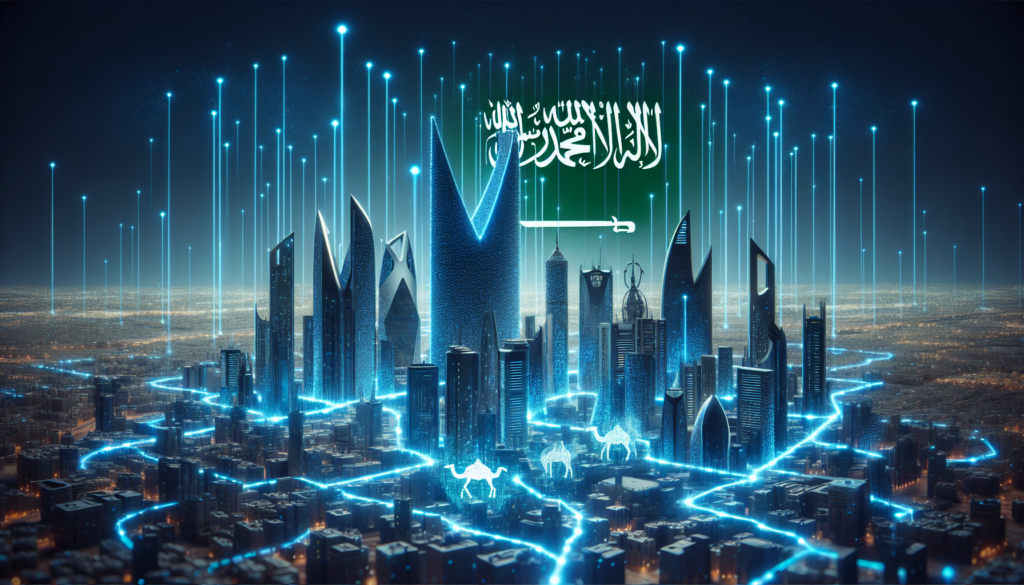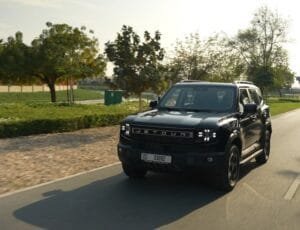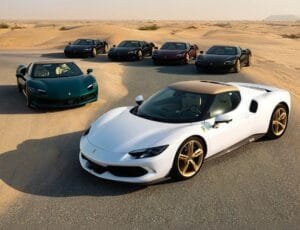As Saudi Arabia celebrates its 95th National Day, the Kingdom reflects not only on its deep-rooted traditions but also on the sweeping transformation that has been set in motion since the launch of Vision 2030 in 2016. This ambitious blueprint, unveiled by Crown Prince Mohammed bin Salman, has become the cornerstone of economic diversification, cultural revival, and sustainable development.
This year’s National Day carries the theme “Our Pride by Nature” (عزّنا بطبعنا), celebrating values such as generosity, authenticity, and ambition. But alongside that comes “Our Pride by Our Vision” (عزّنا برؤيتنا), a reminder that Saudi Arabia’s journey is not only about honoring the past but also about building a bold future.
Economic Powerhouse: From Oil Reliance to Diversified Growth
One of the most striking achievements under Vision 2030 has been the expansion of the Saudi economy. In 2022, the country’s GDP surpassed the one trillion-dollar mark, reaching SAR 4.2 trillion—a historic milestone that cements the Kingdom’s place among the world’s largest economies.
The Public Investment Fund (PIF) has also grown into a global investment giant, expanding its assets from SAR 570 billion in 2015 to over SAR 3.4 trillion by 2024. This has allowed Saudi Arabia to funnel resources into mega-projects, global investments, and local industries—ensuring the economy is no longer dependent on oil revenues alone.
Mega-Projects: Building the Future Skyline
No conversation about Vision 2030 is complete without mentioning the giga-projects that are reshaping Saudi Arabia’s skyline and global image.
- Neom: A futuristic city on the Red Sea, envisioned as a hub for innovation, clean energy, and sustainable living.
- The Red Sea Project: Transforming pristine islands into a global luxury tourism destination.
- Qiddiya: Saudi Arabia’s future capital of entertainment, sports, and culture.
- Amaala & Trojena: Lifestyle and adventure destinations redefining tourism in the Kingdom.
- Diriyah: Reviving the historical birthplace of the Kingdom as a cultural and hospitality landmark.
- Riyadh Metro: A modern transport network set to transform urban mobility.
These projects are more than infrastructure—they are symbols of Saudi Arabia’s ambition to position itself as a global hub for tourism, culture, and business.
Homes, Communities, and Quality of Life
At the heart of Vision 2030 is the Saudi people. Programs like “Sakani” have dramatically improved home ownership, lifting rates from 47% in 2016 to around 65.4% in 2024, with a target of 70% by 2030.
Green initiatives like Green Riyadh and Salman’s Garden are transforming urban landscapes, while public parks, cultural centers, and lifestyle destinations are giving citizens and residents new ways to live, work, and enjoy their communities.
Sustainability and the Saudi Green Initiative
Saudi Arabia has also taken bold steps to place sustainability at the core of its national agenda. The Saudi Green Initiative commits the Kingdom to environmental stewardship—through renewable energy expansion, afforestation, and reducing carbon emissions.
Projects like massive solar and wind farms, as well as hydrogen production plants, signal the country’s pivot toward clean energy. This commitment is not just about reducing emissions—it’s about ensuring a resilient economy for future generations.
Vision 2030 has also unlocked new cultural and entertainment horizons. From the revival of AlUla’s ancient heritage to the expansion of music, film, and sporting events, Saudi Arabia has opened its doors wider to the world.
- International sporting events, including Formula 1, boxing, and football matches, have placed the Kingdom on the global sporting map.
- Music festivals, film screenings, and cultural celebrations are reshaping Saudi Arabia’s global identity.
- Tourism initiatives are attracting millions of international visitors, eager to discover the Kingdom’s natural beauty—from the Asir mountains to the Red Sea coast.
Governance, Policy, and Social Reform
Behind the visible achievements lie deep institutional reforms. Saudi Arabia has modernized its legal framework, improved the ease of doing business, and enhanced public-private partnerships. Localization initiatives have strengthened the local workforce and created new opportunities for Saudi youth.
Women’s participation in the workforce has also grown significantly, reflecting the country’s broader efforts to empower its citizens across all sectors.
Looking forward, Saudi Arabia shows no signs of slowing down. Upcoming goals under Vision 2030 include:
- Expanding renewable energy capacity.
- Increasing international tourism to 100 million visitors annually.
- Strengthening logistics and mobility infrastructure to position the Kingdom as a global transport hub.
- Continuing to invest in education, innovation, and entrepreneurship to nurture the next generation of leaders.
A Kingdom Redefined
On its 95th National Day, Saudi Arabia celebrates more than its history—it celebrates its transformation. Vision 2030 has reshaped the Kingdom’s global image, redefined its economy, and reimagined its society.
From futuristic mega-cities to cultural revivals, from clean energy to global sports, Saudi Arabia is showing the world that it is a nation deeply rooted in heritage, yet boldly embracing the future.
As the fireworks light up the skies this September, one message is clear: the Kingdom’s journey has only just begun.
Arabian Travel Market 2025: Shaping the Future of Global Tou





